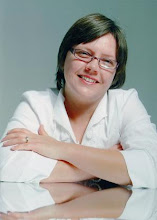This is the final review from the book Walking in this World, by Julia Cameron.
Age and Time
Like Miles Davis once said, “Do not fear mistakes. There are none.” This is something I need to engrave in my head. I fear mistakes all the time and it stifles my family life and my creative life. I just need to leap, and the net will appear.
Julia Cameron states in her book, “Yes, youth passes behind us, but we are blind so often to what we are gaining and to the beauty of what we become as artists. We gain in beauty. We gain in tenderness. We gain in our creative selves.
Anyone who is learning will feel this treacherous mix of vulnerability and frustration, of hope and discouragement. There is an exciting element of self-respect: You are trying.
Practice will make if not ‘perfect,’ then ‘better.’
Clearly, it is mind and muscle and heart that must be trained. All of them must learn patience, the virtue I hate, and repetition, the idea God had the sense to use daily.”
It is the soul’s duty to be loyal to its own desires. It must abandon itself to its master passion. ~ Dame Rebecca West
Service
“The dedication of our work to a higher cause than our won self-promotion frees the work from preciousness. It becomes not about how good we are but about how good we can be in selfless service to something larger than ourselves.
Asking to be of service, and to be open to the proper inspiration to serve through our work, we then become teachable, and when we are teachable, our work always improves.
When our work is made only in the service of our hope for fame or recognition, it is hampered by our self-consciousness as we wonder, How am I doing? When we are able to work without such self-consciousness, we are able to work more freely and more fully. Our ego steps aside and is no longer a constrictive valve narrowing our creative flow and focus. We think less about ‘us’ and more about ‘it,’ the work itself.”
Love is the spirit that motivates the artist’s journey…it’s a powerful motive in the artist’s life. ~ Eric Maisel
“Our ‘best’ to others may internally feel our worst. Our perceptions must not be allowed to capsize our professionalism.
In a sense, the reception of our work by ourselves as well as others is none of our business. Our job is to do it. We work, and the work works through us.
No matter how accomplished and acclaimed we may become as artists, there is always, at core, this essential anonymity: We are in service of something larger than ourselves.
One music teacher decided to set aside all ego and snobbery, set aside how music ‘should’ be taught, and teach from a spirit of love and service. Is it any wonder that his students develop a love of music that serves them well?
Contemplating a piece of work, we do better to think Whom is this work for? Whom will it serve? rather than How will it serve me?
Art moves through us. It is colored by our individuality, but we are not precisely its origin. There is a divine spark animating each of us, and that divine spark also animated our art. When we ask to be of service in our art, we fling open a window in our creative studio. Through that opening, the greater world of inspiration can enter us.”
The gift turned inward, unable to be given, becomes a heavy burden, even sometimes a kind of poison. It is as though the flow of life were backed up. ~ May Sarton
“We are all part of a larger whole and, in acknowledging that truthfully, we move a notch closer to humility, to a simple and sheer plainness that allows the beauty of the grand design to be seen through us.”
Only the heart knows how to find what is precious. ~ Fyodor Dostoyevsky
In closing, Julia Cameron reminds us, “Art is a spiritual practice. We may not, and need not, do it perfectly. But we need to do it.”
As I began writing the review of Walking in this World, I did it for myself so I would remember what the book said. As I end this review, it has become a service to my readers. I would read for them and then write for them. Oh, I still wrote for myself as well, because I have so much to learn. One thing I have learned to do through this journey is to be more myself and not always try to live life as it “should” be or how others want me to live life. I have gotten to the drawing board more instead of thinking other things needed to be done first. That’s a hard habit to break but one I’m slowly striving to conquer through baby steps. I hope you were able to make some changes in your own life while reading these reviews.



